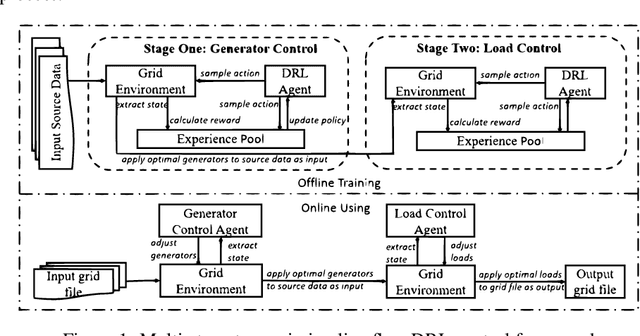Xiumin Shang
Composite Motion Learning with Task Control
May 05, 2023



Abstract:We present a deep learning method for composite and task-driven motion control for physically simulated characters. In contrast to existing data-driven approaches using reinforcement learning that imitate full-body motions, we learn decoupled motions for specific body parts from multiple reference motions simultaneously and directly by leveraging the use of multiple discriminators in a GAN-like setup. In this process, there is no need of any manual work to produce composite reference motions for learning. Instead, the control policy explores by itself how the composite motions can be combined automatically. We further account for multiple task-specific rewards and train a single, multi-objective control policy. To this end, we propose a novel framework for multi-objective learning that adaptively balances the learning of disparate motions from multiple sources and multiple goal-directed control objectives. In addition, as composite motions are typically augmentations of simpler behaviors, we introduce a sample-efficient method for training composite control policies in an incremental manner, where we reuse a pre-trained policy as the meta policy and train a cooperative policy that adapts the meta one for new composite tasks. We show the applicability of our approach on a variety of challenging multi-objective tasks involving both composite motion imitation and multiple goal-directed control.
* SIGGRAPH 2023. Code: https://github.com/xupei0610/CompositeMotion. Video: https://youtu.be/mcRAxwoTh3E
Multi-Stage Transmission Line Flow Control Using Centralized and Decentralized Reinforcement Learning Agents
Feb 16, 2021


Abstract:Planning future operational scenarios of bulk power systems that meet security and economic constraints typically requires intensive labor efforts in performing massive simulations. To automate this process and relieve engineers' burden, a novel multi-stage control approach is presented in this paper to train centralized and decentralized reinforcement learning agents that can automatically adjust grid controllers for regulating transmission line flows at normal condition and under contingencies. The power grid flow control problem is formulated as Markov Decision Process (MDP). At stage one, centralized soft actor-critic (SAC) agent is trained to control generator active power outputs in a wide area to control transmission line flows against specified security limits. If line overloading issues remain unresolved, stage two is used to train decentralized SAC agent via load throw-over at local substations. The effectiveness of the proposed approach is verified on a series of actual planning cases used for operating the power grid of SGCC Zhejiang Electric Power Company.
 Add to Chrome
Add to Chrome Add to Firefox
Add to Firefox Add to Edge
Add to Edge